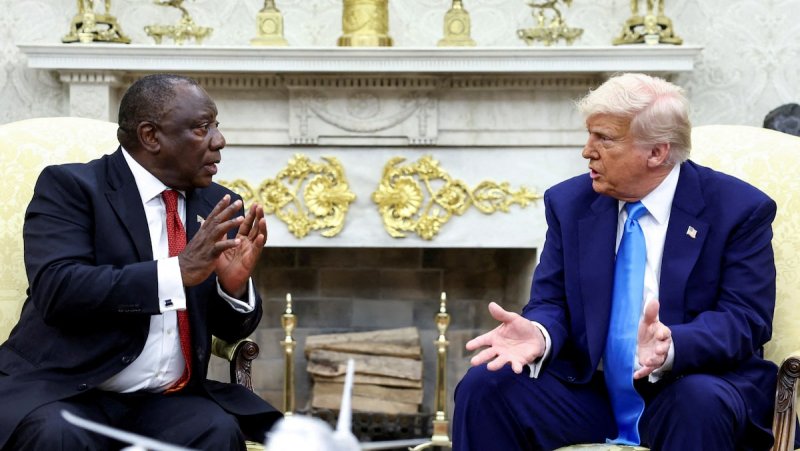In early July, U.S. diplomats in South Africa sought clarification from Washington on a controversial refugee policy initiated under former President Donald Trump: whether non-white racial minorities are eligible to apply for a refugee resettlement program primarily aimed at white South Africans.
The program, established by Trump’s February executive order, was designed to resettle Afrikaners — an ethnic group mostly descended from Dutch settlers — who the administration described as victims of “unjust racial discrimination.” However, questions arose over whether other minority groups, such as the “coloured” community in South Africa (mixed-race people who often speak Afrikaans), could also qualify if they met other criteria, News.Az reports, citing Reuters.
In a July 8 diplomatic cable, David Greene, the top U.S. diplomat in South Africa, asked if the embassy could process claims from racial minorities beyond Afrikaners, including the Khoisan people, an indigenous group. Greene also noted that members of South Africa’s Jewish community had expressed interest, but since they are considered a religious rather than racial minority, eligibility was uncertain.
Days later, an email response from Spencer Chretien, the senior official at the State Department’s Bureau of Population, Refugees, and Migration, reportedly clarified that the program was intended for white South Africans. Reuters was unable to independently verify the exact wording but obtained details from three sources familiar with the exchange.
The State Department later issued a statement describing the policy’s scope as broader than the initial email suggested, affirming that applications would be considered from both Afrikaners and other racial minorities in South Africa. Official guidance posted on the department’s website in May states applicants must be of Afrikaner ethnicity or a member of a racial minority in South Africa.
To date, 88 South Africans have been resettled under the program, including 59 who arrived in May and another 15 expected by the end of August.
Trump, who returned to the White House promising strict immigration controls, initially froze refugee admissions worldwide but subsequently issued the executive order to prioritize Afrikaners. He described them as victims of “violence against racially disfavored landowners,” echoing claims common in far-right circles but rejected by the South African government.
The South African government disputes allegations of race-based attacks or “white genocide,” stating there is no evidence to support such claims. During a tense May meeting with South African President Cyril Ramaphosa, Trump presented misleading evidence, including footage from the Democratic Republic of Congo, to argue the case for the refugee program.
Despite official denials, far-right groups and some U.S. conservatives have amplified the narrative of white South African persecution. Elon Musk, a South African-born U.S. citizen and former White House aide, has also been associated with promoting these views.
A White House spokesperson confirmed that refugee admissions would prioritize “South African citizens, including Afrikaners and other racial minorities… targeted by discriminatory laws of the South African government,” reflecting Trump’s executive order.
The program’s implementation has sparked internal debates within U.S. diplomatic circles over racial eligibility criteria, highlighting the complexities of applying a race-based refugee policy in South Africa’s diverse population.
